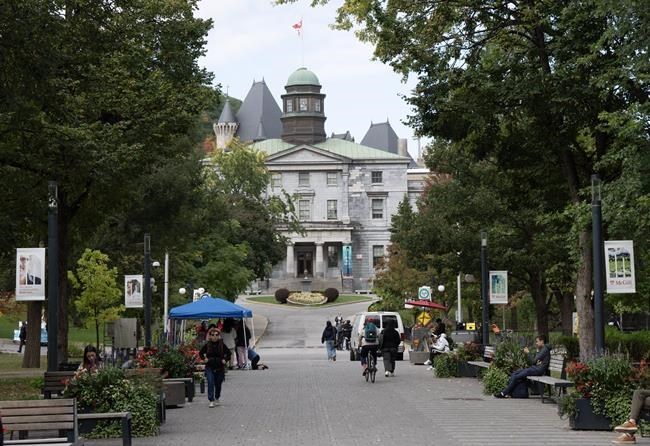MONTREAL — English-language universities in Quebec are bracing for the potential financial fallout of the province’s decision to nearly double tuition for out-of-province students.
At McGill University in Montreal, the news has already had an impact as administrators measure the potential loss of revenue if students from outside Quebec opt to go elsewhere rather than pay the steep new fees.
It has led the university to postpone the announcement of a $50-million investment in programs designed to help students, faculty and staff develop French-language skills and "integrate more fully into Quebec society," the school said in a statement Thursday.
In a letter addressed to the McGill community Monday, Principal Deep Saini warned of "serious consequences" for the university. He asked "those responsible for spending to be prudent" while administrators study the possible effects of the tuition increase — a roughly $8,000 hike for Canadian students from outside the province.
On Friday, Quebec announced that tuition for undergraduate students from other provinces would rise to about $17,000 from $8,992, starting next fall. Higher Education Minister Pascale Déry also said the government would charge universities $20,000 for each international student they recruit.
The decision is expected to mostly affect the province's three English-language universities — McGill, Concordia and Bishop's — which welcome more non-Quebecers than French schools. Saini warned the tuition hike could deter prospective McGill students from other provinces and territories, who currently make up 20 per cent of the student body.
Premier François Legault has defended the move, insisting Quebec taxpayers should not have to subsidize students from other provinces and saying the influx of anglophone students "threatens the survival of the French language."
Bishop's University Principal Sébastien Lebel-Grenier says the financial impact of the tuition increase could be "catastrophic" for his Sherbrooke-Que. school, where almost 30 per cent of students come from other provinces.
"We're looking down a potential loss of one-fourth of our revenue," Lebel-Grenier said in a phone interview. "For a university, that's not something you can manage, such a significant change overnight."
He said the school hopes to talk with the Quebec government to identify an arrangement that "will allow Bishop's to carry on," but warned of "difficult if not impossible choices," including spending cuts, if the province implements the hike as planned.
"We're already running on paper-thin margins and we're being extremely careful with our spending," he added. "It's hard to imagine how we could cut back."
Concern for the future of Quebec's English universities also rippled through student bodies this week.
"I fear that this proposed policy could be a death sentence," said Sophia Stacey, president of the Bishop's University Students Representative Council.
Stacey — who is from Alberta and said she came to Quebec to learn French — won’t be subject to the new tuition rate as it applies to students who begin next fall or later. But she said the increase would have made Bishop’s prohibitively expensive.
"If I imagine my 17-year-old self a few years ago applying to universities ... I wouldn't have been able to come to Bishop’s, despite how excited I was," she said.
This report by The Canadian Press was first published Oct. 19, 2023.
— With files from Sidhartha Banerjee.
Thomas MacDonald, The Canadian Press



